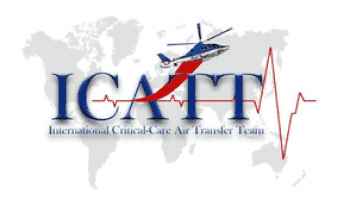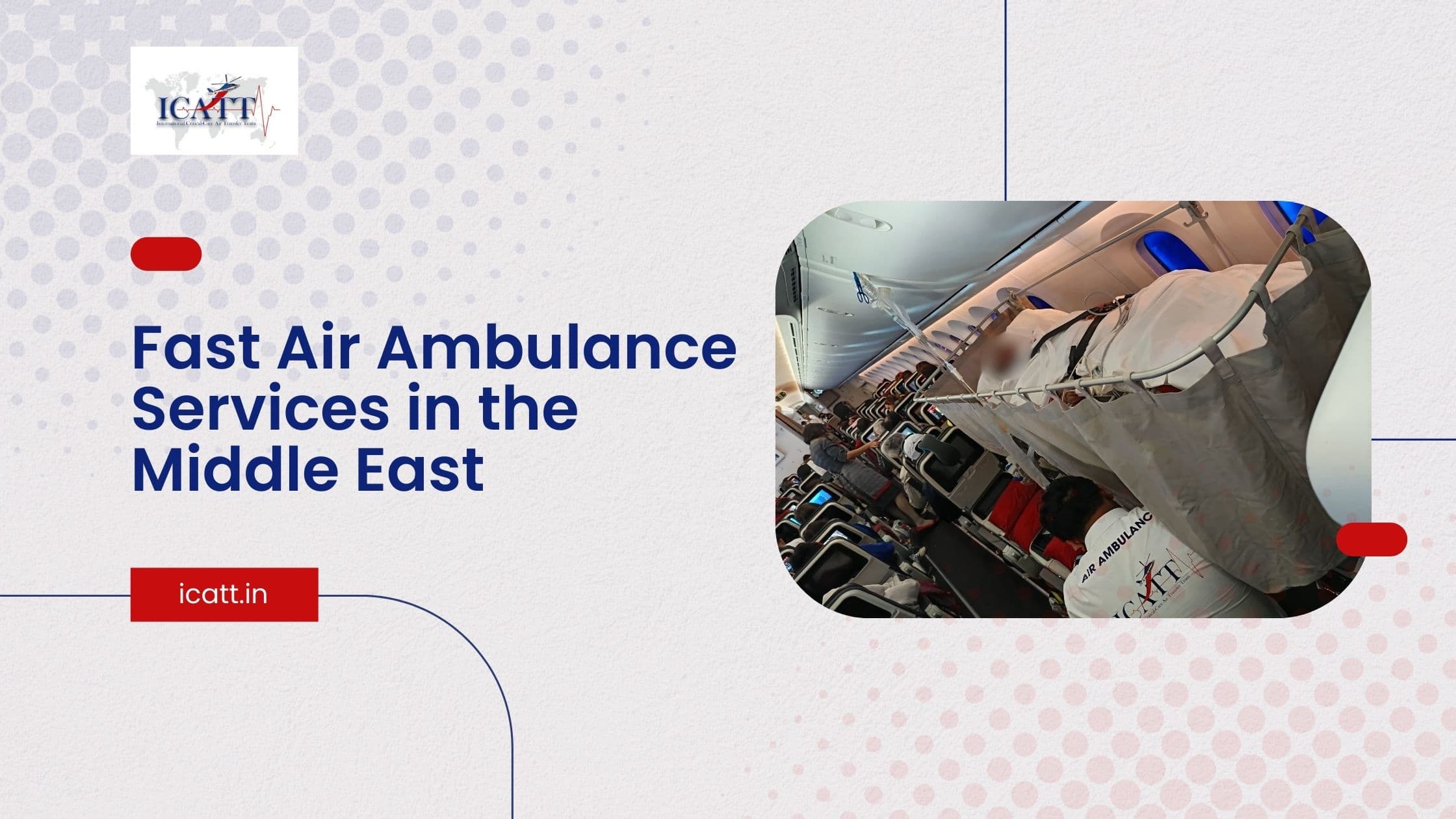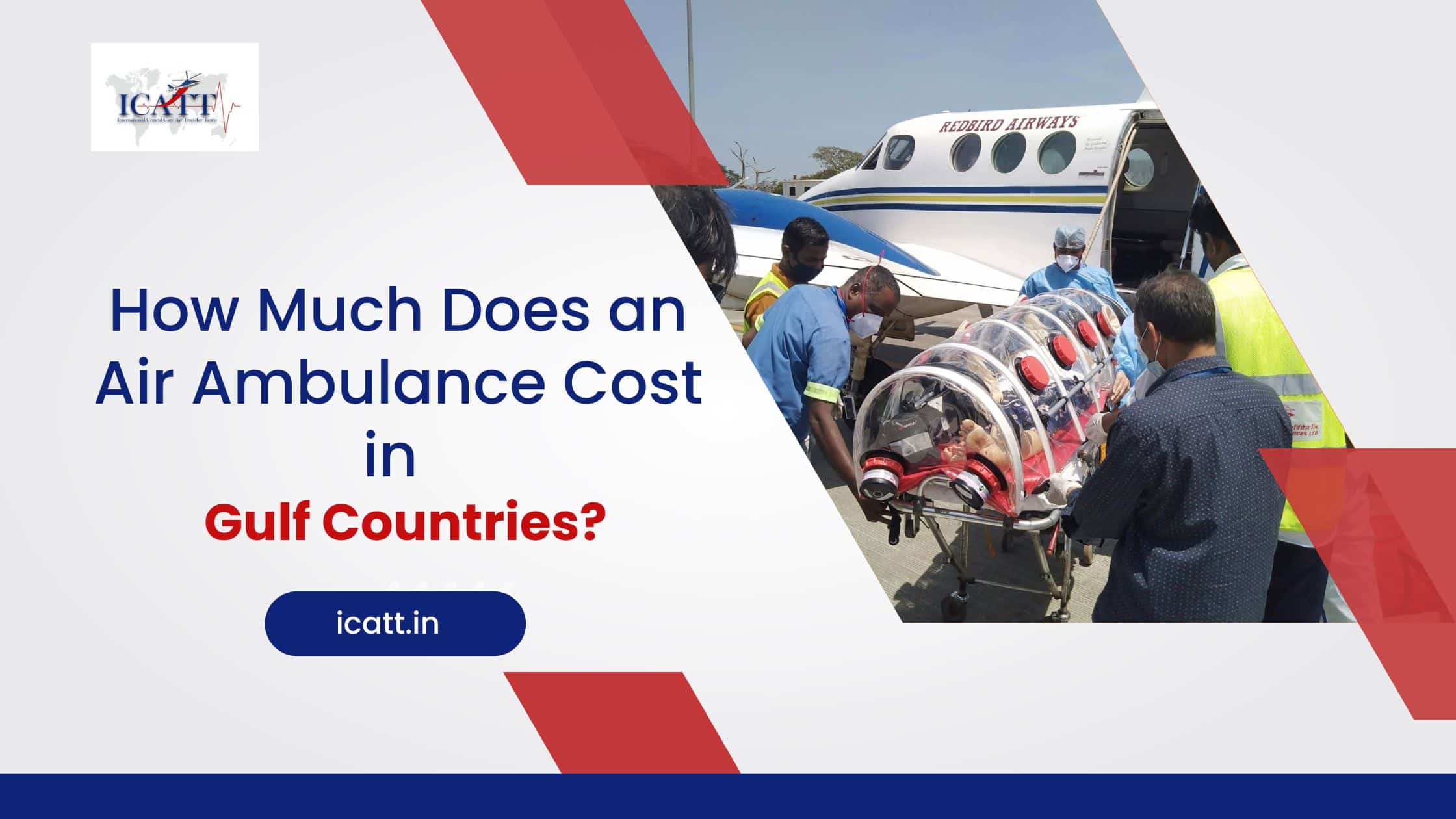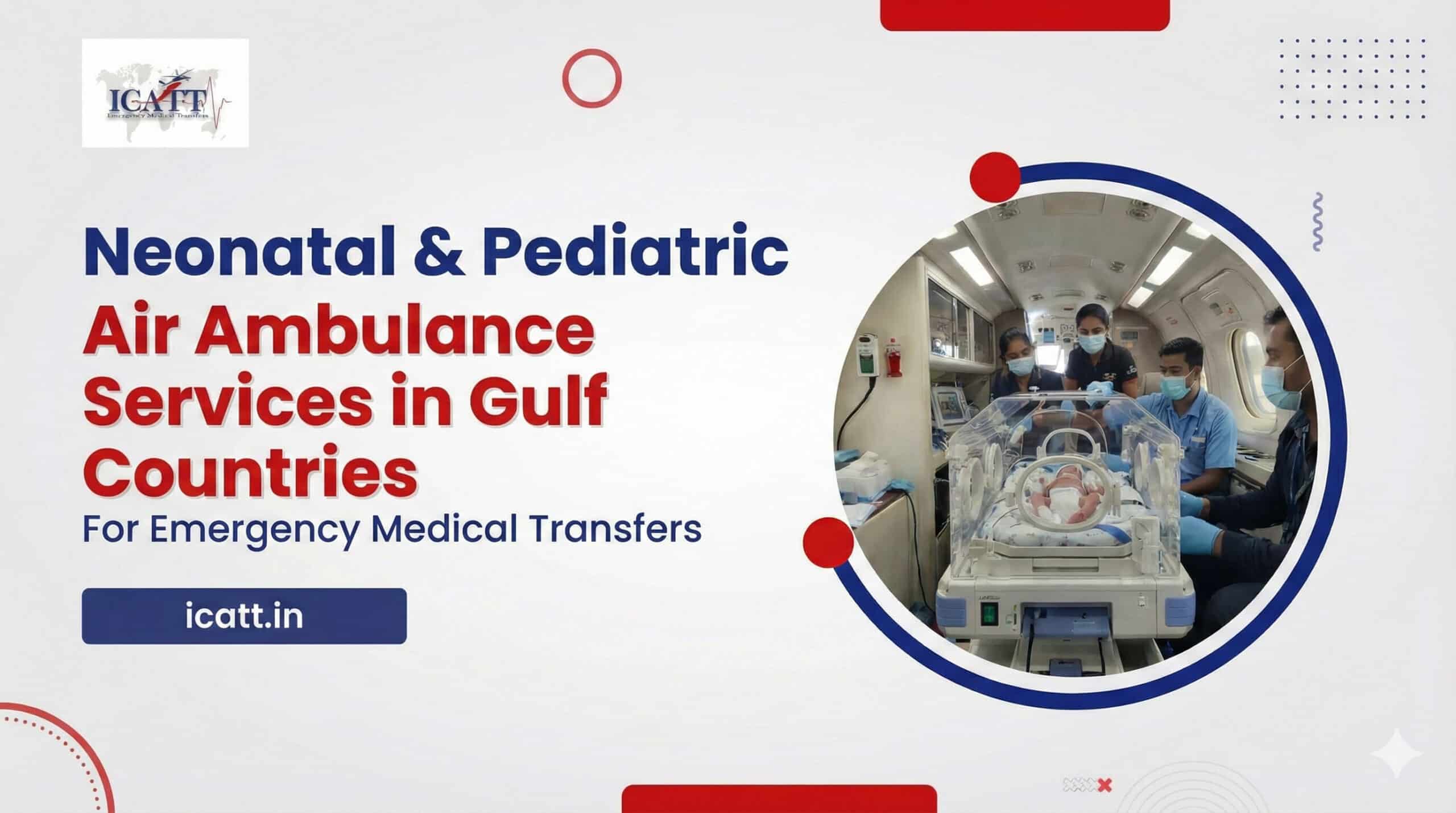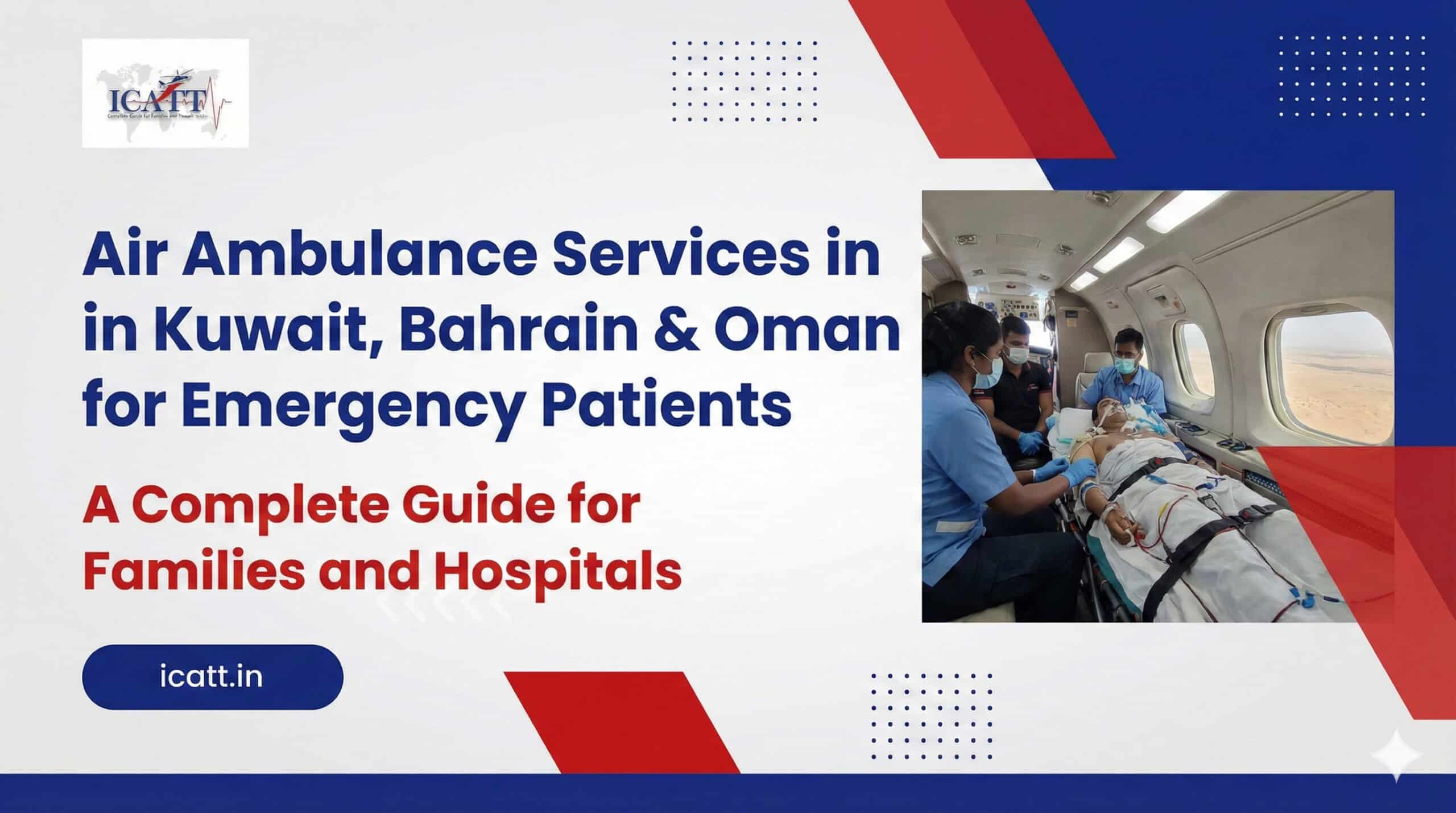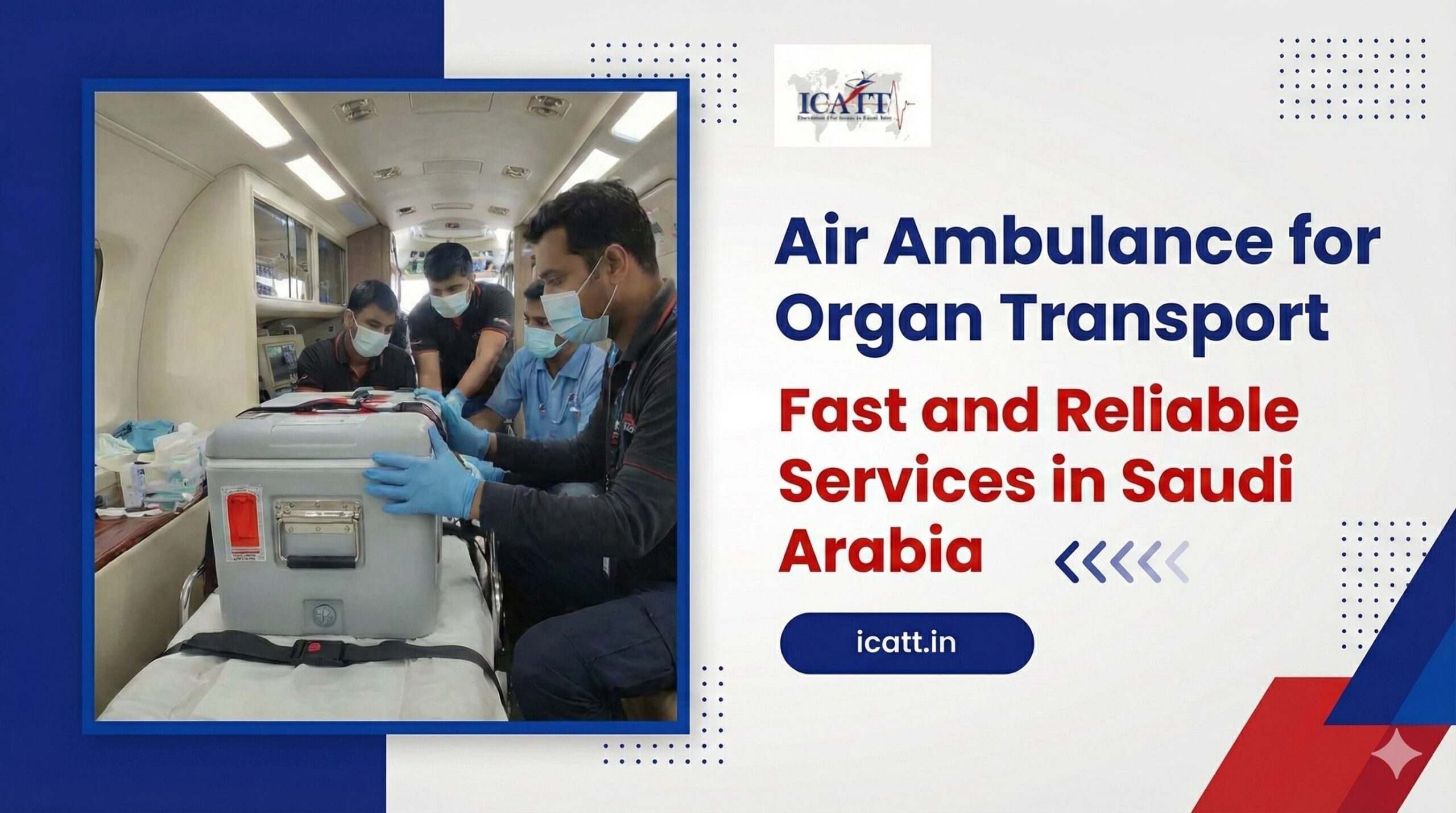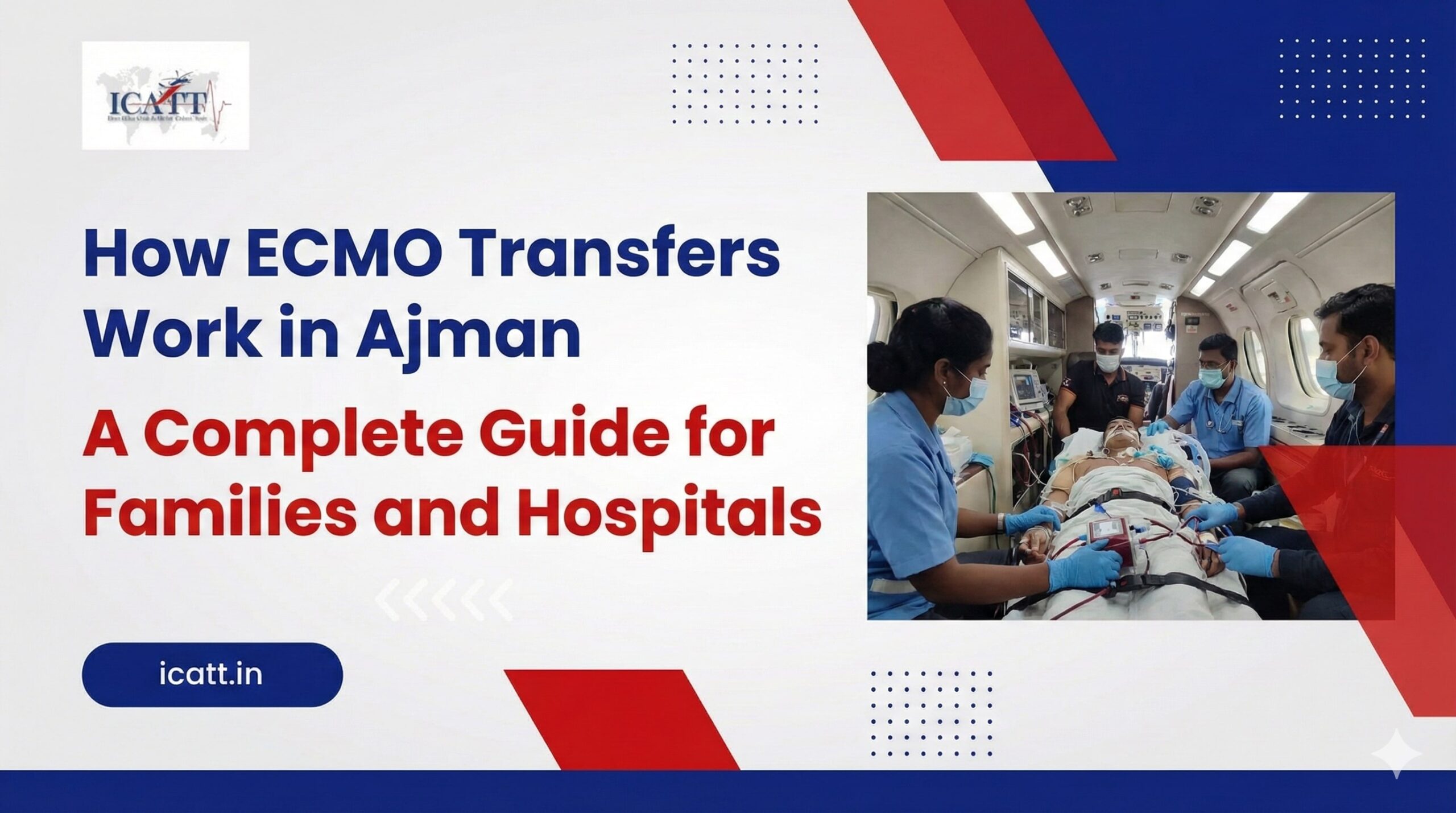Human life expectancy is increasing worldwide, like never before in history. The reasons are many, but the main factors are better hygiene, better availability of nutrition, the blessings of modern technology like an air ambulance. With an ageing population, we face new challenges in helping patients who need more invasive procedures. One of the new and exciting technology tools in air ambulances around the world is the ECMO technology, Extracorporeal Membrane Oxygenation and Extracorporeal life support devices.
ICATT Kyathi Air medical transportation in India is a leading and specialized provider of air ambulance service with ECMO Aeromedical Transportation. Patients are transported from city to city by ambulance service by ECMO Aeromedical Transportation. You can also order this service anytime, anywhere at an affordable price. 95% Of All ECMO Transfers In India Are Done By 1 Team, i.e., ICATT Kyathi Air Ambulance. Our air ambulance service is available in many cities in India such as Delhi, Calcutta, Mumbai, Chennai, Bangalore, Vellore, Patna, Guwahati, Hyderabad and others. Air ambulance flights are available in all of these cities around the clock and are even ready for the transfer of critical patients at any time with ECMO Aeromedical Transportation.
This article provided by ICATT Kyathi Air medical transportation in India gives information about the ECMO team in an air ambulance. Before that, let us see!
What is ECMO?
The machine that replaces the function of the heart and lungs is ECMO. People who need support from the ECMO machine are treated in the intensive care unit. Usually, people use ECMO for a few hours to days, but it can take several weeks depending on how their condition develops.
What does ECMO mean?
- Extracorporeal: Outside the body
- Membrane: A type of artificial lung
- Oxygen supply: The process of getting oxygen in the blood
Why use ECMO?
ECMO is used to help people whose lungs cannot supply the required oxygen to the body, even when they are given supplemental oxygen. The lungs cannot exhale carbon dioxide even with the aid of a mechanical ventilator. It is also used when the heart can’t pump enough blood to the body, ECMO can also be used to help people with incurable heart or lung disease while they are waiting for an organ transplant (such as a new heart and new lungs).
ECMO can be used in all age groups, from infants to adults who are in critical condition of the heart, lungs, or are recovering from a heart transplant. Some of the heart conditions that ECMO can use include:
- Life-threatening reaction to infection
- Congenital heart defects
- Low body temperature
- Myocarditis
- Post-transplant complications
- Acute myocardial infarction
- Heart muscle disease
- Heart attack
- Some of the lung conditions that ECMO can use include:
- Congenital diaphragmatic hernia or defect in the diaphragm
- Coronavirus Disease (COVID-19)
- Blockage of the pulmonary artery in the lungs
- Acute respiratory failure
- Meconium Aspiration Syndrome (MAS)
- Very high blood pressure in the pulmonary arteries (PPHN)

How does the ECMO engine work?
The ECMO machine is connected to the patient via a cannula which is a plastic tube. Tubes are placed in large veins and arteries of legs, neck, or chest. Cannulation is a process by which a doctor places these tubes in a patient.
The ECMO machine performs the lung function by pumping blood from the patient’s body to an artificial lung (oxygenator) which then adds oxygen and removes carbon dioxide. Similar to heart the ECMO machine then sends blood back to the patient through a pump with the same power.
Someone controls the ECMO machine called a perfusionist, or advanced respiratory therapist called an ECMO specialist. The perfusion specialist or ECMO specialist adjusts the machine settings to give the patient the required amount of cardiac and pulmonary support.
How are patients monitored on the ECMO machine?
Anyone connected to the ECMO machine in the air ambulance ICU is also connected to the monitor to measure heart rate, blood pressure and oxygen level. ECMO patients require blood tests often to measure levels of oxygen and carbon dioxide. This test is called a blood gas.
Also, Patients on ECMO are given drugs to thin the blood, so it doesn’t clot so that the blood does not get clot and is runny enough. All of these results are used to determine how well the ECMO machine is helping the patient and make changes if necessary.
ICATT Kyathi ECMO transfers in India, Extracorporeal membrane oxygenation transport (ECMO) Team
The Critical Care Transport Team at ICATT KYathi Air ambulance in India is one of the ECMO Aeromedical Transportation: 95% of all ECMO transfers in India are done by one team that is ICATT. We offer ECMO transportation for children and adults with heart failure.
The modes of transport used for patients with ECMO include helicopters, fixed-wing aircraft, or ambulances and are largely time-dependent.
From the time the ECMO transport team arrives at the patient bed until the patient is taken to a helicopter or ambulance, the ECMO is provided. Patients transported on ECMO can be candidates for heart transplantation or long-term cardiac support with ventricular assist devices or heart pumps.
The ICATT ECMO transport team consists of five highly qualified experts:
- Doctors from the pediatric intensive care unit
- Flight nurse
- Respiratory therapist
- Perfusionist
- ECMO technician

In Detail about the doctor’s job in ECMO transport with ICATT:
- ECMO Doctor: A doctor who will be available in the ICU of ICATT Kyathi air ambulance when the decision has been made to admit a patient to an ECMO. These doctors have special education and training in ECMO machine management and how machines affect your loved ones. The primary role of this doctor is to direct the care of a loved one’s ECMO care from start to finish. The ECMO doctor can be one of several subspecialists depending on the facility. Examples are pulmonologists or cardiologists.
- Interventional Cardiologist: A doctor who performs ECMO placement either in a catheterization lab or at a bedside. Placing ECMO into adult patients is often more of a procedure than an operation.
- Cardiothoracic surgeon (CT): A doctor who performs heart and lung surgery. This doctor can place the needles needed for ECMO, especially if the patient’s main problem is heart disease. This can be done in the operating room or at the bedside.
- Vascular surgeon: A doctor who operates on veins and arteries. This doctor removes the needles needed for ECMO but also ensures that the patient’s legs and arms receive an adequate blood supply and are not damaged by a large ECMO needle.
- Perfusionist: A person who has specific training and certification for operating cardiopulmonary devices.
- ECMO primary coordinator: A Registered nurse (RN), respiratory therapist (RT), or perfusionist who specializes in the operation and operation of ECMO machines. The coordinator will prepare the ECMO devices and pipes when patients are placed at ECMO for the first time. If there is a problem with the ECMO circuit, one of these people is always available to work with an ECMO specialist to solve the problem.
- Respiratory Therapist: A registered respiratory therapist who has specific skills to care for many sick patients. One of these respiratory therapists will be present to provide breathing procedures and operate breathing apparatus for patients. Ventilator (breathing apparatus) and lung care specialist
- ICU Nurse: A trained nurse who has specific skills in caring for many sick patients. One of these nurses will be at the bedside monitoring the patient, providing medication, and providing any other care he may need to your loved ones.
ICATT Kyathi Air Ambulance offers ECMO services for critically ill newborns, infants, children and adolescents.
Conclusion:
With ICATT Kyathi Air Ambulance, your loved one is in safe hands.
Use of ECMO Air Care helps expedite transportation and critical care that saves patients’ lives and increases the speed and quality of care. With ICATT Kyathi air ambulance state-of-the-art helicopters operated by Metro Aviation, our team can respond to patients faster and more efficiently. The ICATT Kyathi air ambulance program provides a fast response and protects patients from leaving the area to get the immediate cardiopulmonary care they need.
Call us at +91-9701111156. Equipped with modern medical equipment, our emergency air wing promises to save as many lives as possible. Our 24 * 7 support teams will help you very patiently and offer the best for you.
